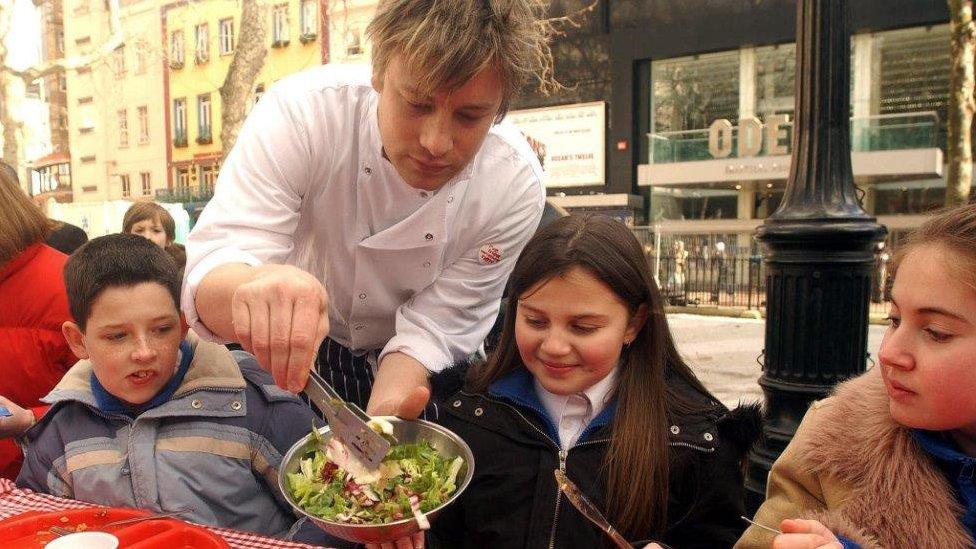Free school dinners: Why they may be scrapped
- Published

Since September 2014, all infant pupils have been offered a free school meal
"Mean-spirited" and "wrong-headed" is how teachers' leaders have described Theresa May's plan to scrap free school meals for infant pupils in England.
And perhaps to some it may seem bullish to deny the youngest kids a free lunch, even if free breakfast is on offer.
The move has sparked taunts of "May, the meals snatcher" - reminiscent of Margaret Thatcher's infamous cancelling of free school milk.
But to Theresa May's Conservatives it was a policy that no longer added up.
The party does not believe "a free school lunch for every child in the first three years of primary school... is a sensible use of public money".
Eating or learning?
It's one of those tough decisions - but a free breakfast, cheap at a 10th of the price, now seems a more desirable alternative to the Conservatives - although the value of the free-lunch scheme has never been assessed.
For some, the idea - brought in by the coalition government in 2014 - was always too expensive.
It was very much a Liberal Democrat policy and plans were announced by Nick Clegg at his party's conference in 2013.
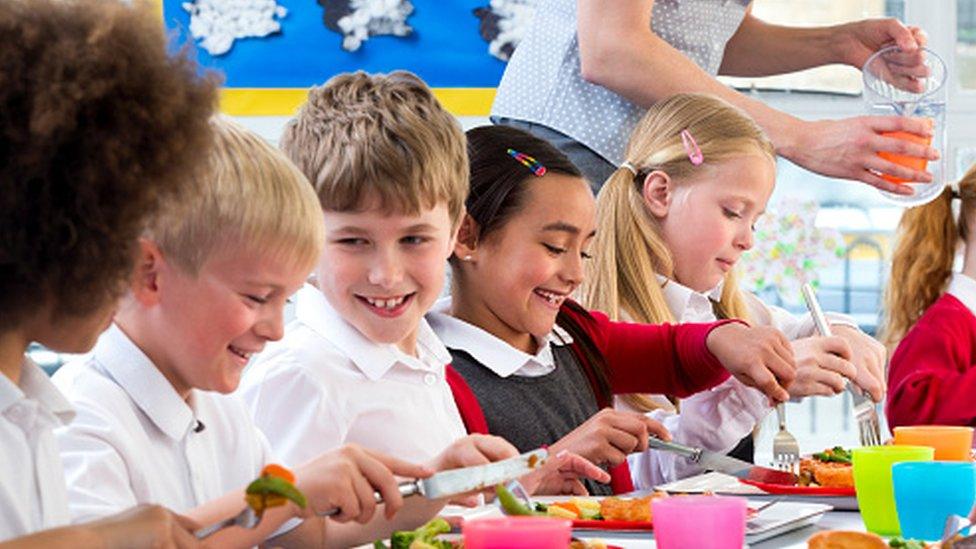
It was not long before his man in the education department, the then schools minister David Laws, was accused of understating the costs of the policy itself.
This he denied, but the then Education Secretary Michael Gove sought reassurance from the Treasury that schools would not be forced "to subsidise meals by reducing their spending on teaching and learning".
Those opposed also started to claim it might cut into the budget used to provide much-needed extra school places.
And in a sense, the Conservatives do not want to be seen to be funding free dinners when in this tougher school-funding climate heads are saying they are unable to pay for some of the basics.
'Breakneck speed'
They say the pressures on their budgets are much more about the unfunded extra costs of teachers' pay, pensions and national contributions.
Valentine Mulholland, head of policy at the National Association of Head Teachers, said: "After the nightmare of bringing this policy in at breakneck speed and all the capital funding spent to upgrade kitchens and dining facilities, it's pretty sad to see this U-turn."
A BBC News Freedom of Information request just six months before it was due to come into force, in September 2014, found 2,700 primary schools needed new catering facilities before they could even think about offering free meals to all infant pupils.
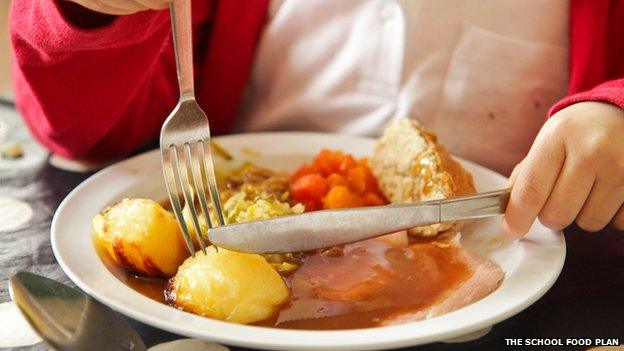
Primary school heads had complained they were being asked to do something undeliverable in the time allowed.
In any event, as they so often do, schools managed the challenge that landed in their laps.
Perhaps this is why teachers and heads appear to feel so upset at the idea of scrapping free lunches - even if breakfast is being offered instead.
National Union of Teachers general secretary Kevin Courtney said cancelling the universal offer of a hot meal in the day is "mean-spirited and wrong-headed".
The policy did not make sense, or represent value for money, given the investment many schools had already made in kitchens and staffing, he said.
"It is a long time for a child to go without food from the morning until 3:30pm, which will be the case for many families in work but struggling."
'Sweet-shop lunch'
Mr Courtney's claim may seem alarmist to some, but it will ring true for many teachers, who often raise the issue of pupil hunger.
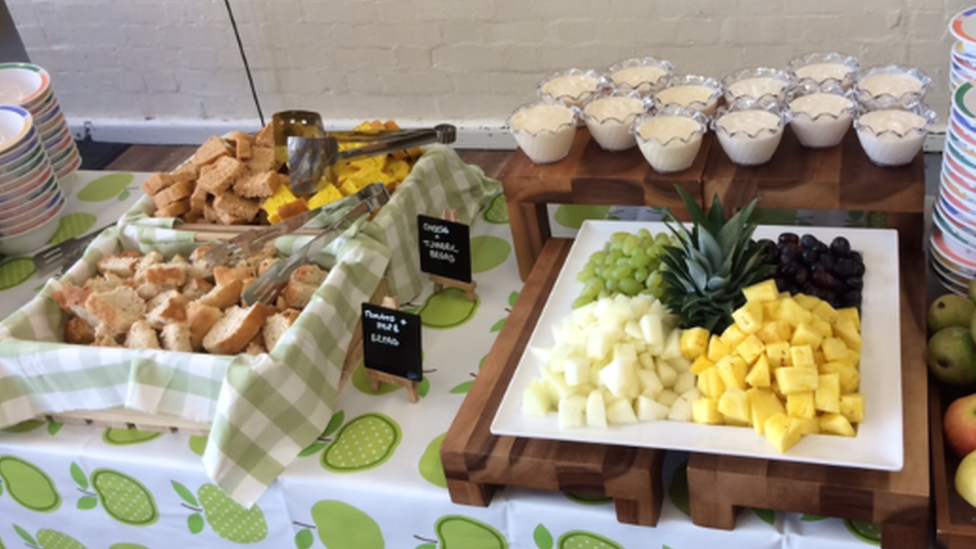
Nicky Gillhespie, school business manager at Cheam Fields Primary, said things were very different before her school introduced free school meals.
"We had children coming in with nothing.
"There were some who'd been given a pound by their parents to stop and get something in the sweet shop for lunch on the way to school," she said.
The school in Cheam, south London, had no kitchen when the free school meals pledge was made and dinners were driven over to the school by a catering firm.
"Burgers were kept warm in trays of hot water, for example, so they looked really pale and the children just didn't want to eat them," she said.
'Culture change'
Since then, with the help of a government-funded kitchen pod worth £70,000, the school has seen a complete change of culture.
Uptake on meals went from about 85 to 300 a day - and there were some individual success stories.
"There was one girl who would only eat rice and now she eats a full diet, like all the other children," Miss Gillhespie said.
"It did enable us to change the whole culture of the school - but without that being funded, I do think that it's going to be eroded away.
"Parents still think £2.30 is too much to pay for a meal and if they've got two children or even three or four, it's a lot of money.
"There must be so many children on that breadline, who wouldn't be entitled to free school meals, but will now be put off because they have to pay for it."
- Published18 May 2017
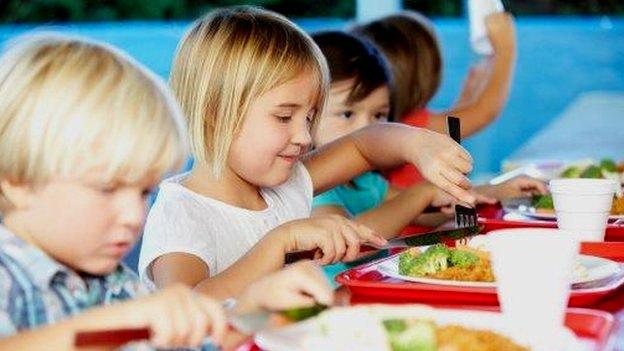
- Published19 May 2017
